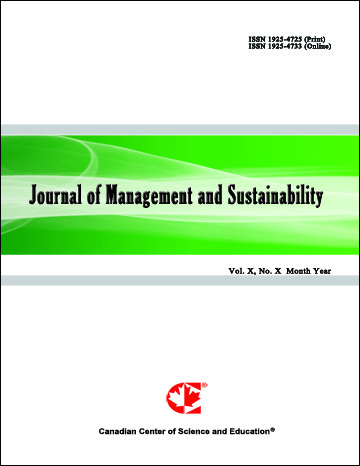The VICEX Fund: Recent Shortcomings of a Long-Run Success Story
- C. Chang
- Thomas Krueger
Abstract
In this article, we empirically test the extent to which the VICEX fund, a portfolio of companies benefiting fromhuman vices (i.e., alcohol, gambling, and smoking), outperforms a variety of benchmarks. One pair of
benchmarks consist of Vanguard’s 500 Index Fund and a portfolio of all funds in the same Morningstar style
category based on company size. On a more focused basis we compare the performance of the VICEX fund to
two popular dividend-oriented mutual funds, because of the propensity of several VICEX fund components to
offer large dividend yields. Using a wide array of return, risk, and risk-adjusted measures we find limited
support for human vice-based investing over an extended period of time. Over the recent 2008-2009 period, the
VICEX fund has underperformed these alternatives.
- Full Text:
 PDF
PDF
- DOI:10.5539/jms.v3n3p131
Journal Metrics
Google-based Impact Factor (2021): 1.54
h-index (July 2022): 37
i10-index (July 2022): 147
h5-index (2017-2021): 12
h5-median (2017-2021): 19
Index
- Academic Journals Database
- ANVUR (Italian National Agency for the Evaluation of Universities and Research Institutes)
- CAB Abstracts
- CNKI Scholar
- EconBiz
- Excellence in Research for Australia (ERA)
- GETIT@YALE (Yale University Library)
- Harvard Library
- HeinOnline
- Infotrieve
- JournalTOCs
- LOCKSS
- MIAR
- PKP Open Archives Harvester
- RePEc
- Scilit
- SHERPA/RoMEO
- Stanford Libraries
- UCR Library
Contact
- Evelyn XiaoEditorial Assistant
- jms@ccsenet.org
